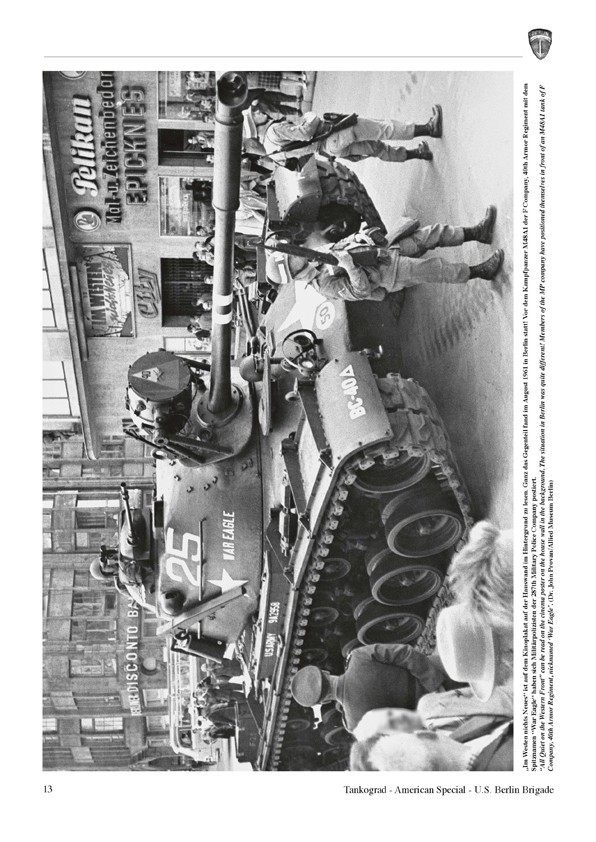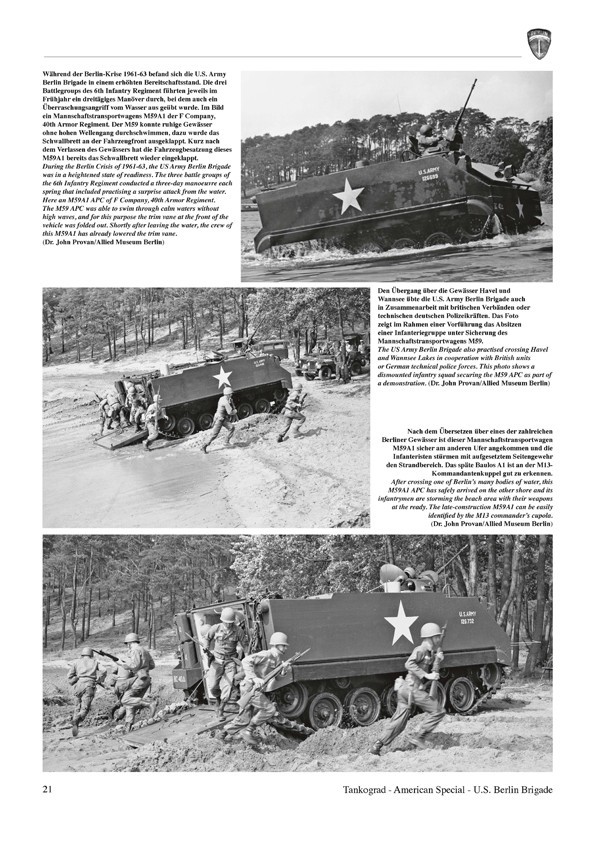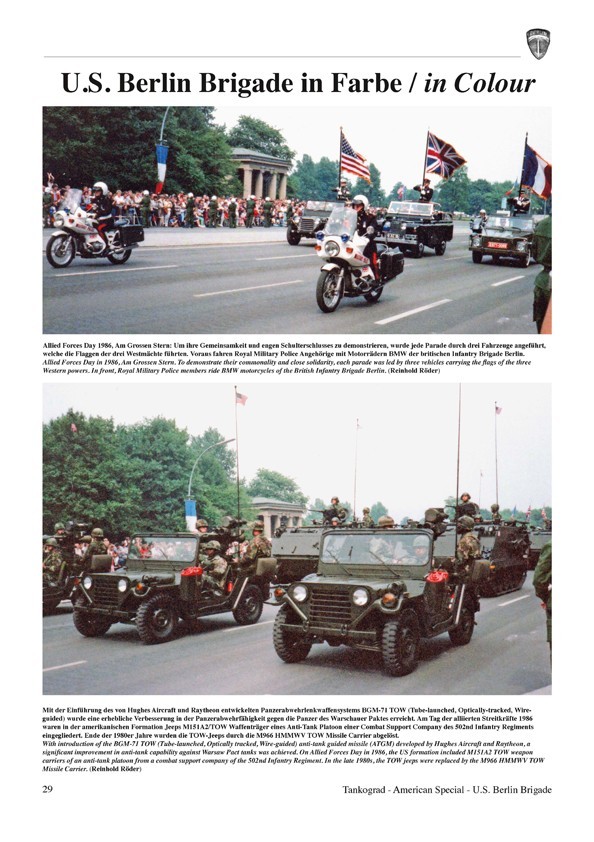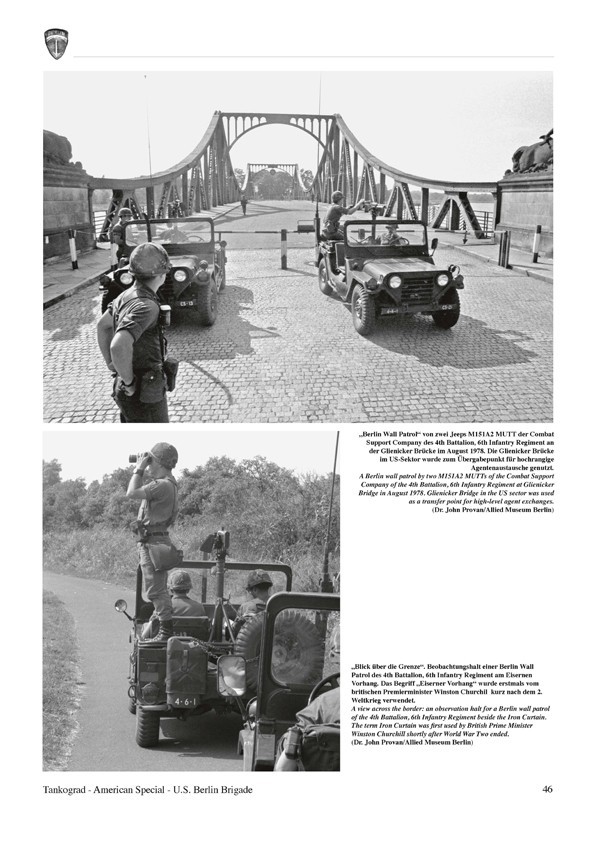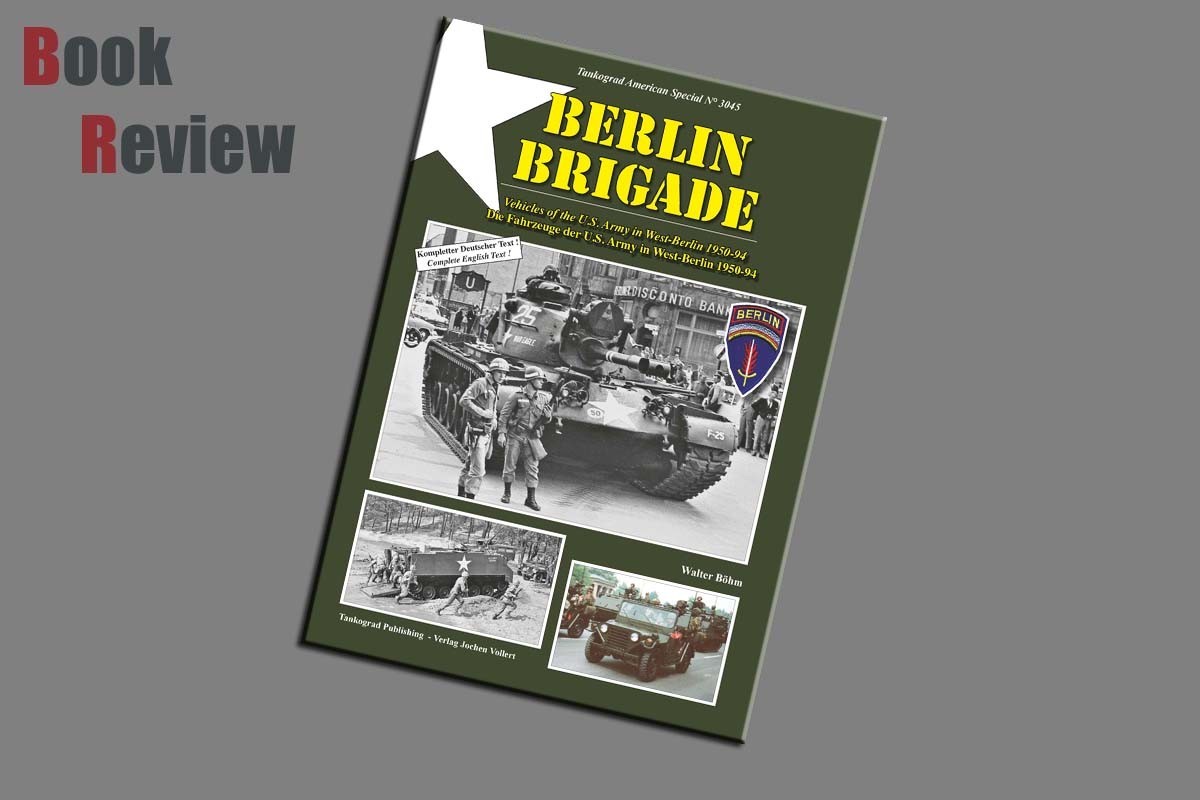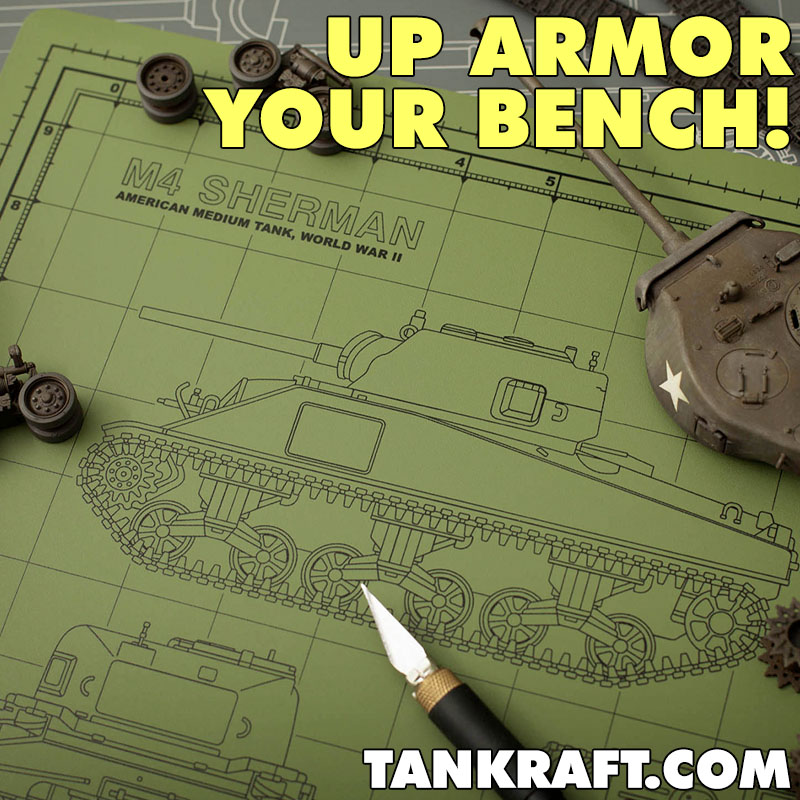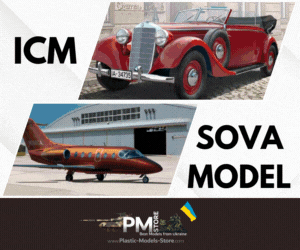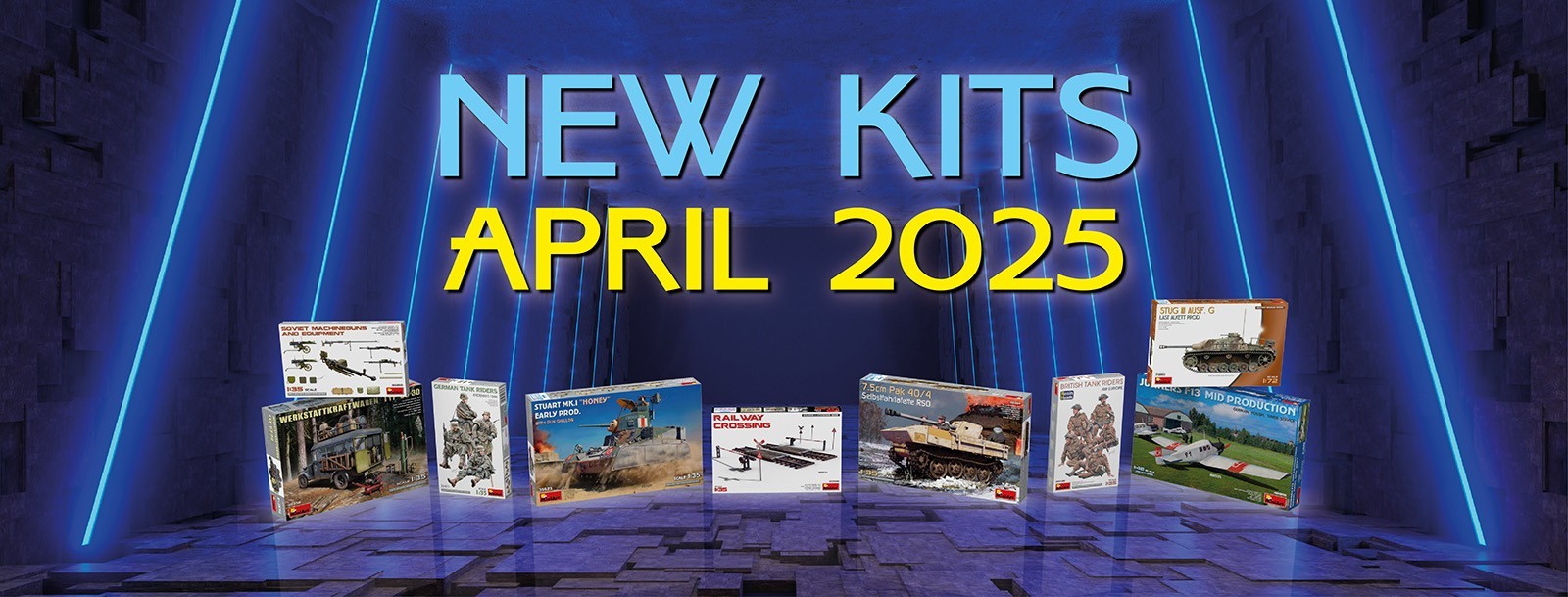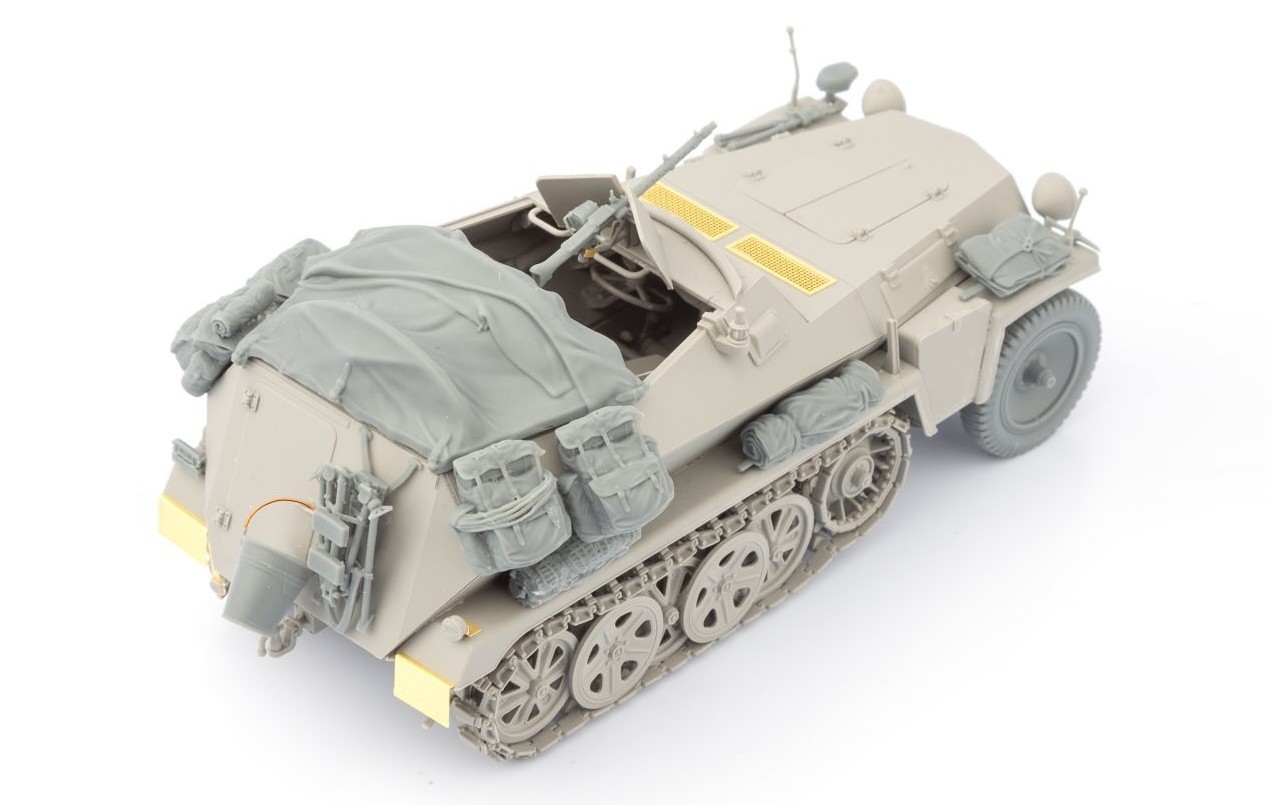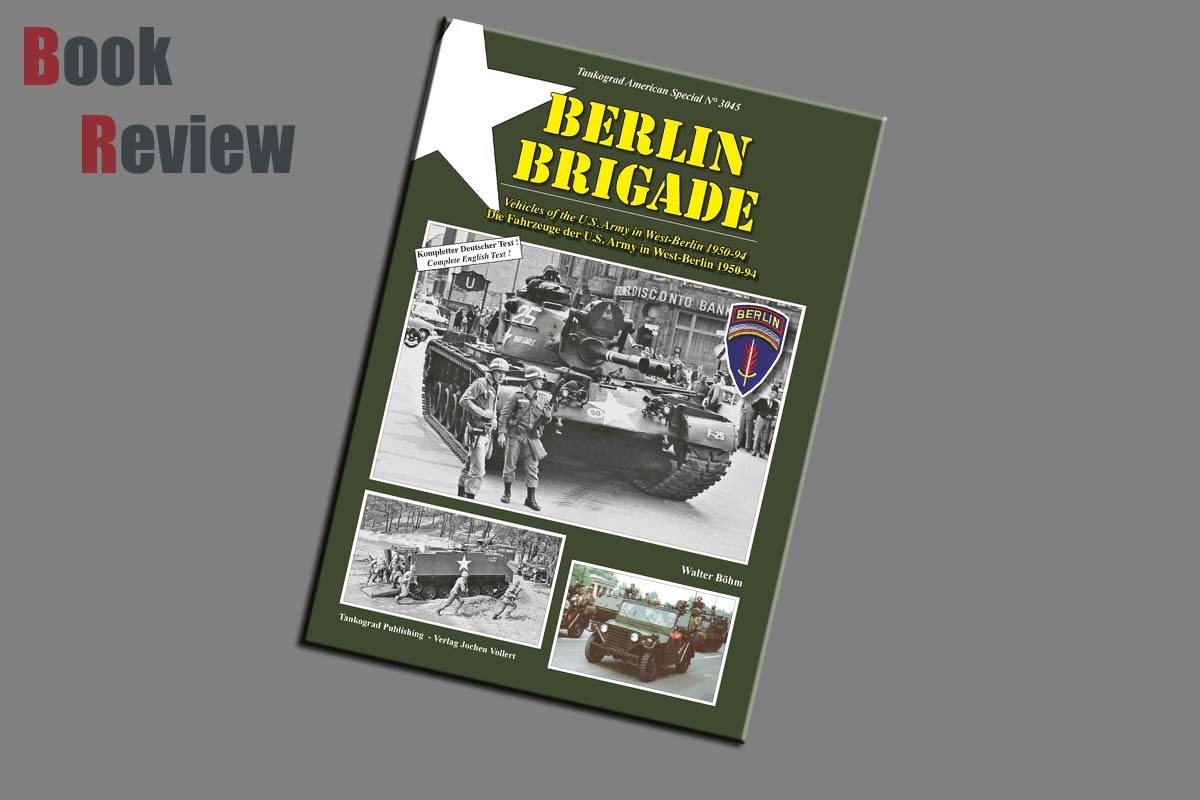
Introduction
The following introduction is taken from the Tankograd website:
With the arrival of the 2nd (US) Armored Division "Hell on Wheels" as a regular occupation force, the history of the U.S. Army began in Berlin in July 1945. In addition to the Soviet Union, United Kingdom and France, the American troops took over the administration of a sector of the city. In the following years Berlin would see historic events such as the Allied Airlift and the construction of the intra-German border, the "Wall". The U.S. Army, at first with the Berlin Military Post, then with the Berlin Command and finally with the Berlin Brigade, provided core support in defending the city against Soviet agitation, last but not least by providing a continued deterrent most visible by the presence of tanks. This publication shows, with many hitherto unpublished photos, the vehicles used by the U.S. forces in Berlin from 1950-94 - predominantly the tanks that kept the permanent Soviet threat at bay.
Review
This offering from Tankograd publishing is 3045 in the American special series, and looks at the Berlin Brigade portion of the US Army from 1950-94. The author of this release is Walter Bohm, who has authored many of the titles available from Tankograd. This offering is a duel language publication, with German text on the left and English on the right of each page. A good font has been used in the title, but the size of the text is a little on the small side to read unless wearing glasses.
The dedicated text provided in this offering has been kept to a minimum, but not to the expense of the author managing to get across to the reader what he intended. As I said, the text is a little on the small side for my old eyes but once I put my spectacles on it is easy to read, has plenty of useful information and does its job very well all things considered.
I suspect that we as modellers are more enthused to get to the photographs. The photographs provided are a good mix or black and white, plus a colour section. These period photographs are very pleasing from a quality point of view, with a lot of detail being able to be gathered on both the subject matter and also what is in the fore and background which the modeller who is placing a model into a diorama. The photographs offered are a good mix over the period in which the Western Allies of NATO had units based in Berlin. This shows a steady progression of uniform, as well as advancements in vehicles. I did find an error on page 16, where the German text refers to a M48A1 as a M38A1, but the English text is spot on, and if I am honest repeatedly typing in vehicle designation numbers I can forgive a slip of the finger. While on the subject of the M48 it gets a good degree of coverage in this title, and the ever present M113 also gets some glory time. Mixing in with this are a good selection of soft skinned vehicles, which gives the modeller a wide choice of subject matter with which to work. So the black and white photographs at the start of this title give you a good progression of the US Army up until the 1980’s.
A series of colour photographs are then presented, which shows the transition from “Paint if green” to introducing camouflage schemes on to their armour. There are some good photographs here of the M109A3 and its support vehicle the M992A2 field ammunition support vehicle. The photographs provided here stop just as I was getting drawn into them, but it was pleasing to see the artillery get a showing. We then slip back into the black and white of the 1960 period, with a good progression in weapons systems finishing with the Abrams MBT. A particularly pleasing aspect to tjis title, is that soft skinned vehicles get great coverage through the years, which I believe the modeller will appreciate as soft skins normally get second class billing. All of the pictures in the title are provided with fully written captions in both German and English, which other than the spelling mistake I picked up and pointed out earlier appear correct.
Conclusion
The books from Tankograd covering exercises and military placements through the years are a popular subject. The modeller, who obtains a copy of this, should be very pleased with what they find as I would suggest that the photographs cover armour and soft skins to the same degree I feel, and so makes for a very pleasing mixed reference. The only negative I can level at the title, is the miss identification/spelling mistake in one of the German captions but if you can’t identify an M48 you are going to be trouble when it comes to building one.
